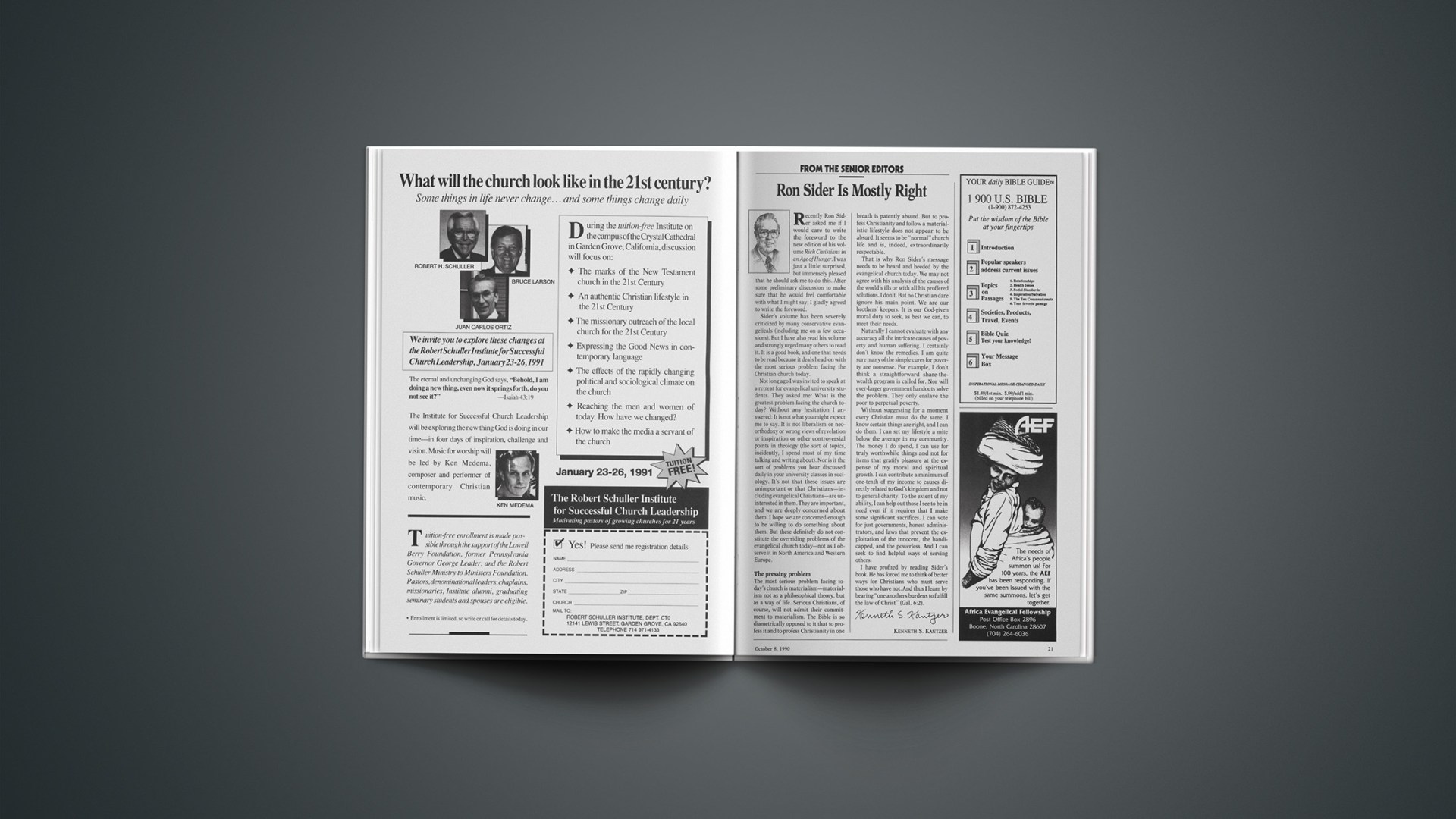Recently Ron Sider asked me if I would care to write the foreword to the new edition of his volume Rich Christians in an Age of Hunger. I was just a little surprised, but immensely pleased that he should ask me to do this. After some preliminary discussion to make sure that he would feel comfortable with what I might say, I gladly agreed to write the foreword.
Sider’s volume has been severely criticized by many conservative evangelicals (including me on a few occasions). But I have also read his volume and strongly urged many others to read it. It is a good book, and one that needs to be read because it deals head-on with the most serious problem facing the Christian church today.
Not long ago I was invited to speak at a retreat for evangelical university students. They asked me: What is the greatest problem facing the church today? Without any hesitation I answered: It is not what you might expect me to say. It is not liberalism or neo-orthodoxy or wrong views of revelation or inspiration or other controversial points in theology (the sort of topics, incidently, I spend most of my time talking and writing about). Nor is it the sort of problems you hear discussed daily in your university classes in sociology. It’s not that these issues are unimportant or that Christians—including evangelical Christians—are uninterested in them. They are important, and we are deeply concerned about them. I hope we are concerned enough to be willing to do something about them. But these definitely do not constitute the overriding problems of the evangelical church today—not as I observe it in North America and Western Europe.
The Pressing Problem
The most serious problem facing today’s church is materialism—materialism not as a philosophical theory, but as a way of life. Serious Christians, of course, will not admit their commitment to materialism. The Bible is so diametrically opposed to it that to profess it and to profess Christianity in one breath is patently absurd. But to profess Christianity and follow a materialistic lifestyle does not appear to be absurd. It seems to be “normal” church life and is, indeed, extraordinarily respectable.
That is why Ron Sider’s message needs to be heard and heeded by the evangelical church today. We may not agree with his analysis of the causes of the world’s ills or with all his proffered solutions. I don’t. But no Christian dare ignore his main point. We are our brothers’ keepers. It is our God-given moral duty to seek, as best we can, to meet their needs.
Naturally I cannot evaluate with any accuracy all the intricate causes of poverty and human suffering. I certainly don’t know the remedies. I am quite sure many of the simple cures for poverty are nonsense. For example, I don’t think a straightforward share-the-wealth program is called for. Nor will ever-larger government handouts solve the problem. They only enslave the poor to perpetual poverty.
Without suggesting for a moment every Christian must do the same, I know certain things are right, and I can do them. I can set my lifestyle a mite below the average in my community. The money I do spend, I can use for truly worthwhile things and not for items that gratify pleasure at the expense of my moral and spiritual growth. I can contribute a minimum of one-tenth of my income to causes directly related to God’s kingdom and not to general charity. To the extent of my ability, I can help out those I see to be in need even if it requires that I make some significant sacrifices. I can vote for just governments, honest administrators, and laws that prevent the exploitation of the innocent, the handicapped, and the powerless. And I can seek to find helpful ways of serving others.
I have profited by reading Sider’s book. He has forced me to think of better ways for Christians who must serve those who have not. And thus I learn by bearing “one anothers burdens to fulfill the law of Christ” (Gal. 6:2).










